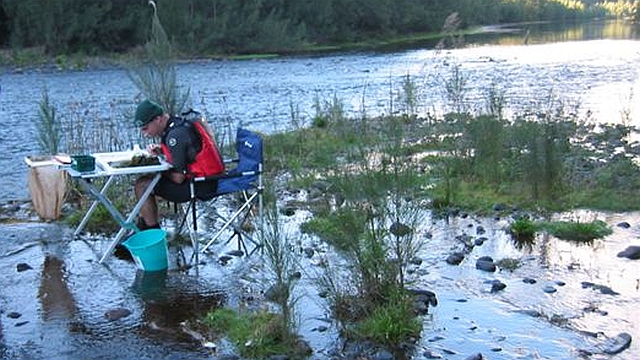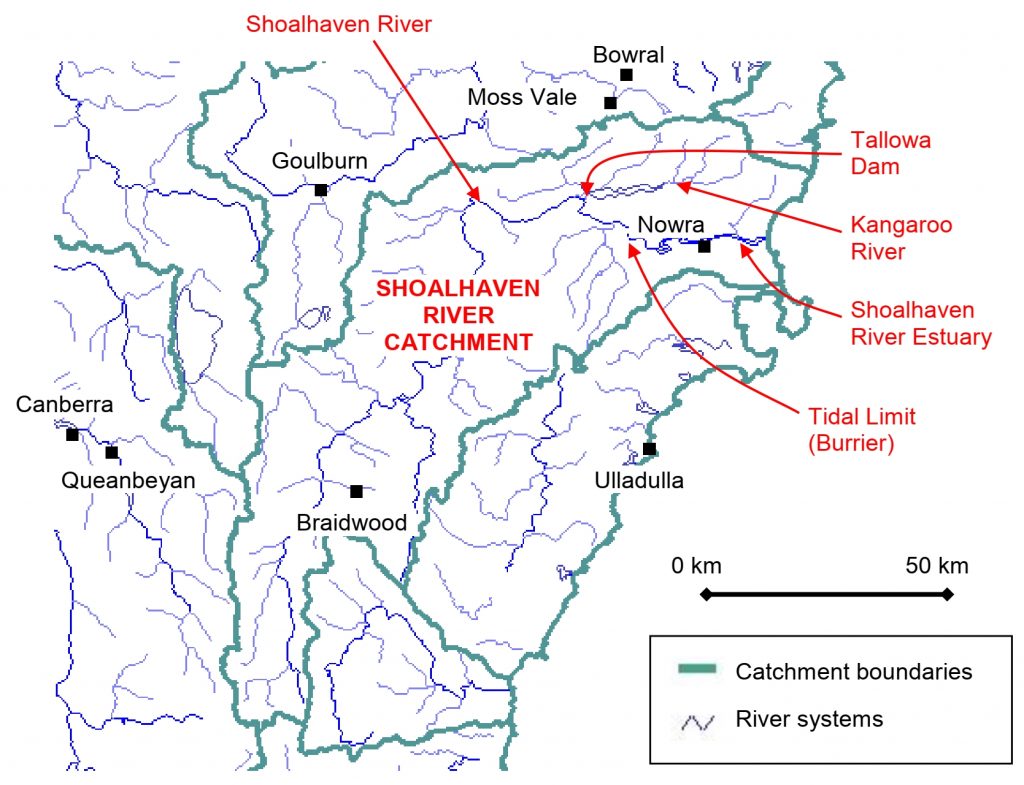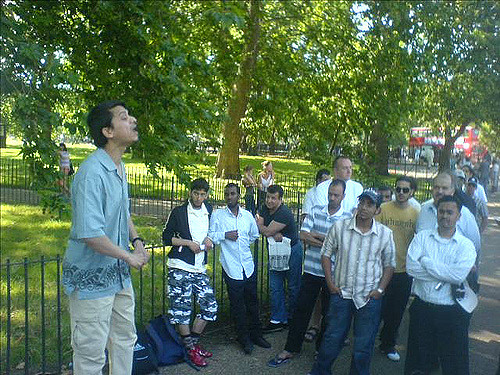
Case study: How polarized debates can be the result of rational deliberation, and how they can be resolved
In a comment on the i2insights blog, Australian National University (ANU) Research School of Psychology Professor Michael Smithson introduces a recent book1 from University of Lund Professor of Sociology Mikael Klintman. This book, titled Knowledge Resistance: How We Avoid Insight From Others looks to be very valuable reading for knowledge managers.
In his comment, Michael Smithson quotes an important question from Mikael Klintman in regard to the “truths” that the different groups in society hold:
If we include facts and knowledge into what distinguishes ‘tribes’ – including modern ones – does this mean that we have to accept that every tribe has its own truth?
Rational polarization
Embedded in concerns in regard to every ‘tribe’ having its own truth is the assumption that truths that are opposed to those of our own group are the product of irrational thinking. However, as Adi Gaskell revealed in an article last week, a team of researchers from the University of Pennsylvania challenge this common assumption in a new paper2. They conclude that:
even though group polarization looks like it must be the product of human irrationality, polarization can be the result of fully rational deliberation with natural human limitations.
Through the use of an agent-based model of group deliberation, the researchers found that group coherence is a rational memory-management strategy for memory-limited agents. This finding appears to at least in part parallel Mikael Klintman’s observations.
An example that clearly illustrates this rational polarization comes from my work in 2005-2006 as part of the team developing a new environmental flow regime for the Shoalhaven River downstream of Tallowa Dam.
The Shoalhaven River is located in southeastern Australia. As shown in Figure 1, it has its headwaters to the east of national capital Canberra, and flows north-east and then east to meet the ocean near Nowra. Rivers are typically made up of freshwater sections in their upper reaches, flowing to a tidal estuary where the river meets the ocean. The freshwater reaches and the estuary have a different physical environment and therefore a different ecology3. As a result, different specializations have developed among the scientists who study freshwater river environments and those who study estuarine environments.

Meta-theories and community-building initiatives
To resolve the polarization, we brought all of the scientists together in an expert panel workshop, where each shared their views, and options for the environmental flow regime were discussed. Debate was extremely heated at times, but agreement was eventually reached. The mechanisms that facilitated agreement were two inter-related approaches that were put forward in a paper5 published last year that I summarised in a previous article. These approaches are the adoption of meta-theories and community-building initiatives across disciplinary boundaries. The paper authors advise that a meta-theory is a “theoretical framework or paradigm with generic and reflexive qualities that prompt scholars to question established assumptions.”
While the expert panel workshop brought together a larger number of scientists, at its core were the members of the scientific advisory panel that had provided guidance throughout the project. The scientific advisory panel included both freshwater scientists and estuary scientists, allowing it to function as a community-building initiative across disciplinary boundaries.
Through this community-building initiative, a core meta-theory had been advanced that ended up being the bridge to agreement in the expert panel workshop. This meta-theory is the holistic approach to the investigation of environmental flow requirements advanced by Griffith University’s Professor Angela Arthington. This holistic approach addresses the ecological complexity of river systems by aiming to reflect natural variability in environmental flows, as I discuss in section 1.3 of the project investigations report6.
A couple of asides here. The first is that important decision-making for the Shoalhaven River had previously involved only freshwater scientists, to the exclusion of estuary scientists. As I discuss in a previous article, this led to a seriously incorrect conclusion being drawn. The second is that a “black box” decision-making approach7, Bayesian analysis, had been proposed as a potentially less confrontational approach to resolving the polarized views in regard to aspects of the proposed environmental flow regime. However, I opposed this in the basis that the debate had to be had for everyone to be able to feel comfortable with the final decisions, regardless of how heated it might end up being. I’m glad that my views swayed the decision in the direction of an expert panel workshop. I’m not a fan of black box approaches because I think they work against the degree of understanding and learning needed for adequate ownership over the outcomes of a decision. However, I’m aware that my own rational “truth” in this regard will not be supported by others.
Facilitating effective knowledge transfer
Returning to Mikael Klintman’s question, do we have to accept that every tribe has its own truth? No, we don’t, particularly when those truths conflict with established science. While the truths on both sides of the polarized debate in regard to aspects of the proposed Shoalhaven River environmental flow regime were based on the best available science, this isn’t the case with the truths for a number of key debates in society. For example, some people are very strongly opposed to vaccinations because they believe that vaccines can cause autism, a view that is in opposition to the scientific evidence, and some people don’t believe that humans are changing the climate, a view that is also in opposition to the science. However, we do have to accept that, as scientifically unsound as such truths may be, they are likely to be the product of rational thought processes.
When we accept that polarized views can be the result of rational deliberation by rational actors, it changes how we frame debates, which leads to the identification and implementation of better solutions. We move from criticism and blame to looking at how we can cooperatively assist groups who hold truths that are radically opposed to our own to broaden their awareness and understanding and effectively engage in decision-making. Indeed, knowing what we now know about rational polarization, can we continue to justify the use of irrationality labels like “climate science denial” – a term that I use as much as anyone? Wouldn’t “climate science unawareness” be a more evidence-based term?
Echoing the research finding that community-building initiatives across disciplinary boundaries can help to facilitate shared understanding and agreement, Adi Gaskell advises at the end of his polarization article that overcoming polarization needs to involve interactions at a systems level rather than individual conversations. A critical element of these interactions needs to be effective knowledge transfer that considers the natural human limitations discussed in the rational polarization paper. I’ve long taken this approach, and seen its benefits time and time again (and conversely also seen the disbenefits when I’ve strayed from this approach).
In addition to the Shoalhaven River environmental flows expert panel, another example is the collaborative learning I facilitated in the Sustainable Management of the Helidon Hills Project, where the degree of polarization was extreme. As I discuss in the second article of a two-part series on the Helidon Hills Project, the problem-solving communication skills I learnt in a University of Queensland class nearly 30 years ago have been pivotal to achieving successful cooperation across polarized boundaries. A further example is the Climate Web’s approach to providing actionable knowledge for climate progress.
Even better than the effective resolution of polarized debates would be the prevention of polarization in the first place through more timely knowledge transfer. For example, in the Helidon Hills area, landholders had been criticised for failing to protect rare and threatened flora and fauna species, and this led to many landholders being strongly opposed to conservation initiatives. Yet, prior to the Sustainable Management of the Helidon Hills Project, nobody had taken the time to meet with landholders, show them the rare and threatened species, and provide them with guidance in how to protect them. Once this was done, landholders actively embraced rare and threatened species conservation. If this knowledge transfer had been carried out in the first place then polarization could have been prevented.
Header image: Sampling macroinvertebrates in a freshwater reach of the Shoalhaven River as part of environmental flow investigations. Source: © Maree Abood, NSW Department of Natural Resources.
References and notes:
- Klintman, M. (2019). Knowledge Resistance: How We Avoid Insight From Others. Manchester University Press. ↩
- Singer, D. J., Bramson, A., Grim, P., Holman, B., Jung, J., Kovaka, K., … & Berger, W. J. (2019). Rational social and political polarization. Philosophical Studies, 176(9), 2243-2267. ↩
- Boyes, B. (2006). Determining and managing environmental flows for the Shoalhaven River, Report 1 – Environmental Flows Knowledge Review. NSW Department of Natural Resources, May 2006. ↩
- Boyes, B. (2006). Environmental water requirements for the Shoalhaven River estuary. Discussion Paper, Shoalhaven Environmental Flows Scientific Advisory Panel. NSW Department of Natural
Resources, March 2006. ↩ - Davies, A., Manning, S., & Söderlund, J. (2018). When neighboring disciplines fail to learn from each other: The case of innovation and project management research. Research Policy, 47(5), 965-979. ↩
- Boyes, B. (2006). Determining and managing environmental flows for the Shoalhaven River, Report 2 – Environmental Flows Investigations. NSW Department of Natural Resources, August 2006. ↩
- A “black box” decision-making approach involves the use of decision support tools (often software based) where the users of the tools are unaware or have only limited awareness of their inner workings. ↩
Also published on Medium.






